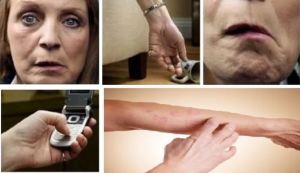(844) 5-SPEECH
Stroke Warning Signs: Be Prepared!
September 28, 2016
What is a stroke?
- Brain Disruption caused by “vascular disruptions”
- Loss of blood or bleeding
- “sudden and severe attack” Cerebrovascular Accident (CVA)
Incidence of Stroke
- 3rd Leading cause of death and disability behind heart disease and cancer
- Annual incidence 2 per every 1,000
- 5 million survivors of stroke in any given year
- 65 and over increases with age
Causes of Stroke
- Vascular Disease
- Disruption in blood circulation
Did you know? Hypertension, cigarette smoking, diabetes, frequent alcohol consumption, obesity, lack of physical activity, and a history of transient ischemic attacks (mini strokes) or CVA’s are all potential factors that may heighten an individual’s risk for stroke.
The Stroke Association uses the acronym F.A.S.T. to help people remember the sudden signs of a stroke. Warning signs are listed below:
- Facial drooping: Is the person weak or numb on one side of the face? Ask the person to smile and see if one side of their face is drooping or uneven.
- Arm Weakness: Is one arm or side of the body weak or numb? Ask the person to raise both arms- Does one arm drift downward?
- Speech Difficulty: Is the individual having difficulty speaking or understanding speech? Have the person repeat a simple phrase, such as “Hello, my name is ___.” Is the sentence imitated correctly? How is the quality of the speech? Is
it slurred? Other warning signs or symp toms may include: impairment of vision, episodes of dizziness or falls, and/or severe headaches.
toms may include: impairment of vision, episodes of dizziness or falls, and/or severe headaches. - Time to call 9-1-1: If you or a loved one is displaying any of the aforementioned symptoms, call 9-1-1 and get the person to the hospital immediately. Also, try and remember the time when first symptoms appeared.
Visit the link below to learn more about strokes, how to prevent them, and moving forward after one has occurred. Remember, good health choices made today can prevent stroke later.
Amanda Weiner MS CF-SLP TSSLD
Recent News

Did What You Hear Make Sense?
March 3, 2025

The Importance of Early Intervention
January 27, 2025

How Parents Can Support Everyday Language Building
January 20, 2025

The Benefits of Support Groups for Adolescents Who Stutter
January 13, 2025

3 Common Misconceptions About Autism Spectrum Disorder (ASD)
January 6, 2025

What are Core Words?
December 30, 2024

